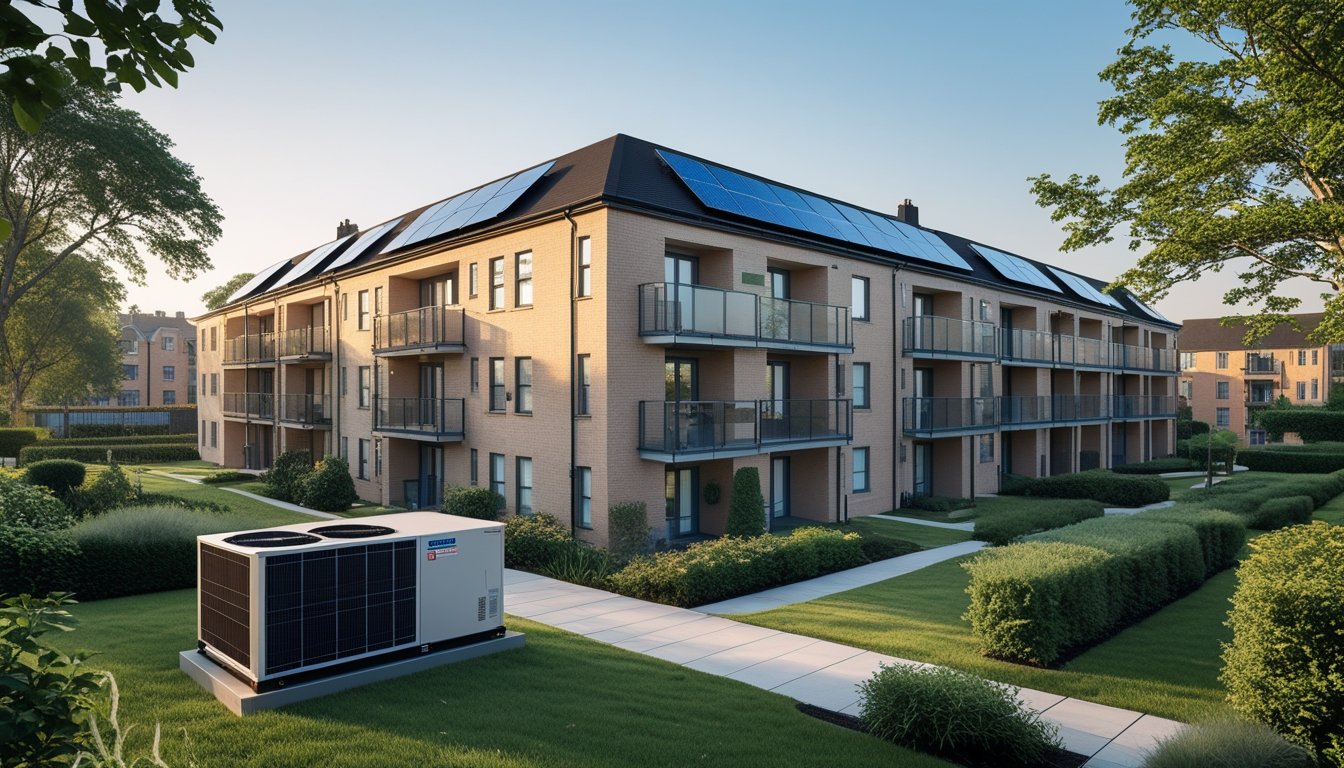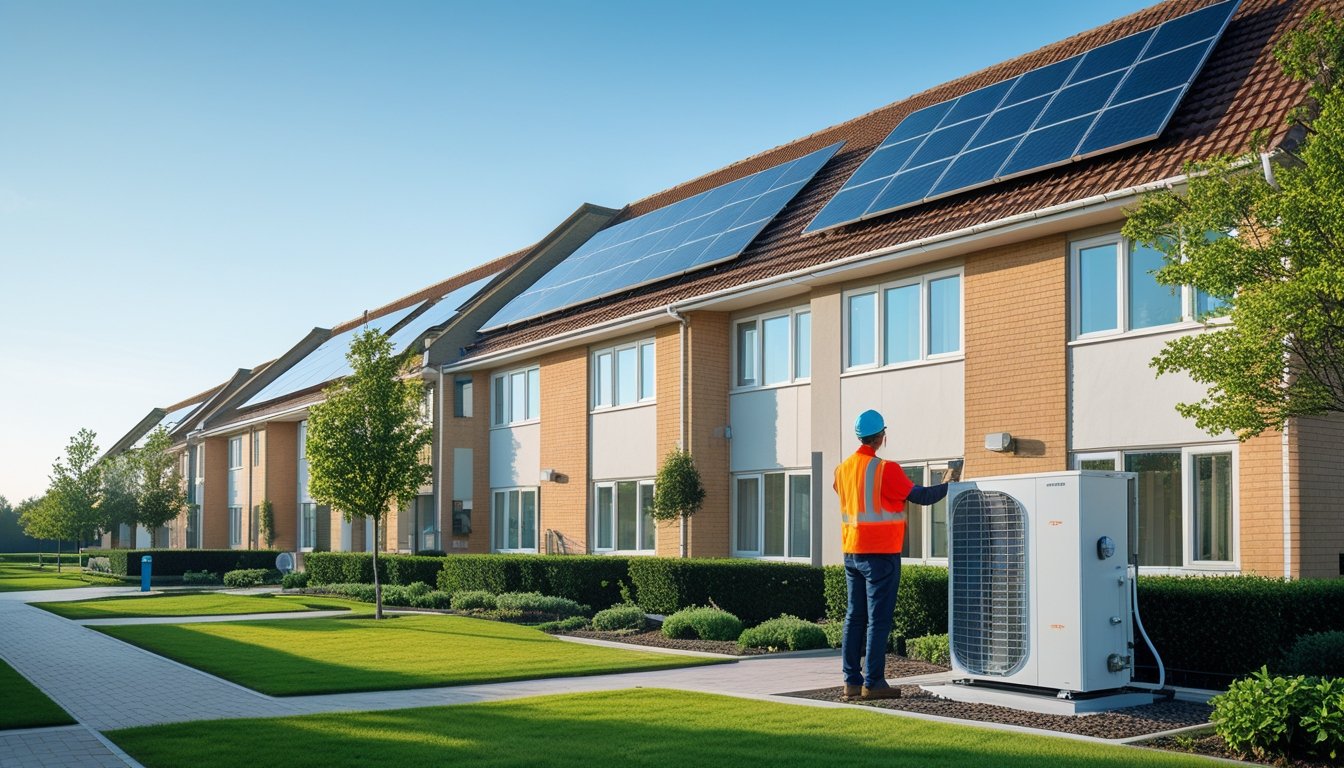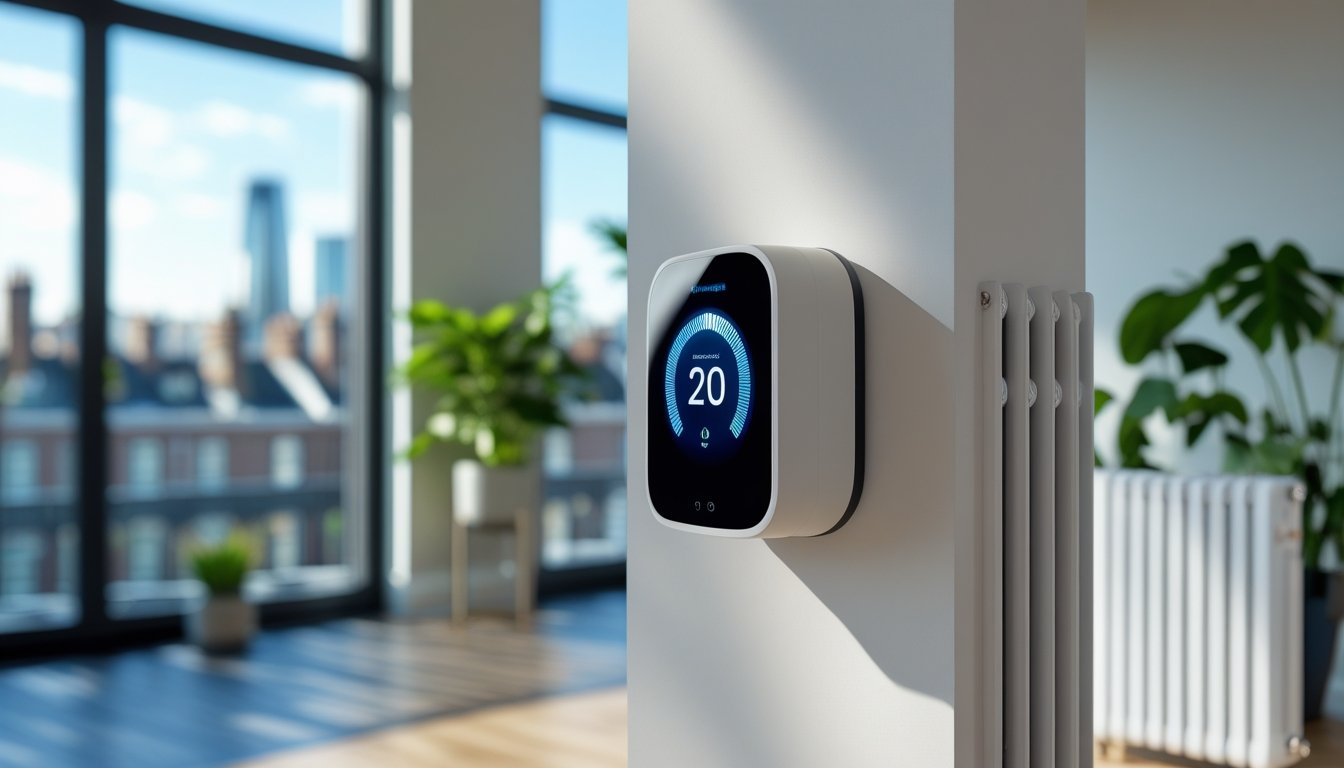Late updated: 05 Aug 2025 10:08
Written by: Eleanor Hartman
Sustainable Heating Solutions For UK Flats: Innovations in Energy Efficiency
As our world increasingly shifts towards eco-friendly living, sustainable heating solutions have become a focal point for many UK residents, especially those living in flats. These compact residences present unique challenges and opportunities when it comes to implementing efficient heating systems. Air source heat pumps, solar thermal systems, and biomass boilers are among the top contenders for reducing a flat's carbon footprint while ensuring warmth and comfort.

Many of us recognise the importance of these advancements, not only for the environment but also for potential long-term savings. While traditional heating systems still dominate, alternatives have started to gain traction. The rise of innovative technologies opens doors for more sustainable options, ensuring that each dwelling contributes positively to environmental goals.
Combining modern technology with everyday practicality, sustainable heating solutions offer a promising path forward for urban dwellers in the UK. Our homes can truly become eco-friendly havens, reflecting our commitment to protecting the planet.
Key Takeaways
- Sustainable heating options are available for flats in the UK.
- Air source heat pumps and solar thermal systems lead the choices.
- Renewable solutions lower emissions and may save costs long-term.
Key Sustainable Heating Solutions for UK Flats
Incorporating sustainable heating solutions in UK flats can drastically improve energy efficiency and reduce environmental impact. With a range of eco-friendly options available, homeowners can choose systems tailored to their specific needs, helping them to achieve both comfort and sustainability.
Overview of Heat Pumps and Their Benefits
Heat pumps are a cornerstone of renewable heating. They transfer heat from external sources into the home, much like a refrigerator in reverse. Their energy efficiency lies in their ability to produce more heat energy than the electrical energy they consume.
Installation is straightforward, making them ideal for urban flats. Notably, heat pumps can be cost-effective over time due to lower running costs and potential eligibility for government incentives. By significantly reducing carbon emissions, they contribute to an eco-friendly home environment.
Air Source Heat Pumps Versus Ground Source Heat Pumps
Two popular types are air source heat pumps (ASHPs) and ground source heat pumps (GSHPs). ASHPs extract heat from the air and are typically more cost-effective and easier to install, especially in urban settings with limited space. In contrast, GSHPs draw heat from the ground, offering greater efficiency even in colder climates.
For UK flats, where space is often limited, ASHPs provide a more practical solution. However, when possible, GSHPs can offer superior long-term savings on energy bills. Each type has distinct advantages, allowing homeowners to choose based on their specific site characteristics and budget.
Integrating Underfloor Heating and Modern Radiators
Integrating underfloor heating with modern radiators can further enhance energy efficiency. Underfloor systems distribute heat evenly and maintain comfortable temperatures more consistently than conventional methods. Modern radiators, designed with low water content, heat up quickly and cool down rapidly, avoiding energy wastage.
This combination not only improves comfort but also lowers energy consumption. In UK flats, these systems can often fit seamlessly into existing infrastructures, providing a robust solution that aligns with the aesthetics and practical demands of modern living spaces.
Electric Radiators and Energy Bills
Electric radiators offer a convenient and efficient means of heating, particularly for flats lacking traditional central heating systems. They can be powered by renewable electricity, furthering the environmental benefits. Advanced models come with smart controls that allow us to optimise heating schedules and reduce unnecessary energy use.
While electric radiators might have varied running costs compared to other systems, their installation is less invasive, offering flexibility and quick deployment. By effectively managing usage, homeowners can ensure that energy bills remain manageable while maintaining a comfortable home environment.
Renewable and Low-Carbon Alternatives for Flats

When considering renewable and low-carbon heating solutions for flats, a range of options are available. These systems not only help in diminishing our carbon footprint but also encourage energy efficiency. Key alternatives include biomass boilers, solar thermal heating, and various grants to support these eco-friendly upgrades.
Biomass Boilers and Wood Pellet Solutions
Biomass boilers, an effective renewable heating solution, use organic materials like wood pellets to generate heat. This method is advantageous due to its reliance on materials that are both renewable and relatively low in greenhouse gas emissions. Wood pellets are a popular choice for flats, offering a consistent and efficient burn rate.
Installing biomass boilers can often result in lower energy costs compared to traditional gas systems. Plus, they are compatible with existing radiator systems in many flats. However, space for storage and a dedicated fuel supply may be necessary. Our transition to biomass technology greatly benefits from these boilers' ability to reduce carbon emissions.
Solar Thermal Heating Systems and Solar Panels
Solar thermal heating systems serve as another innovative approach to sustainable living. These systems harness the sun's energy using solar thermal panels to heat water. They're particularly effective in flats that receive ample sunlight. The panels can be mounted on roofs, occupying minimal space, which is crucial for urban dwellers.
Combining solar thermal systems with solar panels maximises energy efficiency. This hybrid setup not only reduces our carbon footprint but also transforms our flats into modern energy-efficient spaces. Despite the initial costs, the long-term savings and environmental benefits make solar thermal heating a compelling choice.
Boiler Upgrade Scheme and Available Grants
The Boiler Upgrade Scheme offers financial assistance to those opting for low-carbon heating solutions. This initiative helps ease the transition from traditional heating systems by providing grants for installations like heat pumps or biomass boilers. These grants significantly reduce upfront costs, making renewable technology more accessible.
Additionally, various regional grants and incentives can further alleviate the financial burden associated with upgrading heating systems. By capitalising on these opportunities, we can accelerate our move towards sustainable heating. The support from these schemes ensures that flats across the UK can embrace low-carbon alternatives, reducing environmental impacts and enhancing energy efficiency.
Frequently Asked Questions

When considering sustainable heating options for UK flats, several factors come into play, such as the benefits of ground source heat pumps, solar efficiency, and feasibility of geothermal systems. Available incentives can also play a crucial role in decision-making.
What are the advantages of ground source heat pumps in urban residences?
Ground source heat pumps offer high efficiency by utilising stable underground temperatures to provide consistent heating. They reduce reliance on fossil fuels and lower energy costs over time. This option suits urban areas with sufficient land for installation.
How does solar heating contribute to energy efficiency in flats?
Solar heating systems harness the sun’s energy to provide hot water and support heating needs, reducing electricity demand. They work best in sunny locations and may require supplemental systems during winter to maintain efficiency.
What should flat owners consider before installing a biomethanation boiler?
Biomethanation boilers convert organic waste to biofuel. Consider local waste management practices and space requirements for storage. Installation costs and maintenance should also be evaluated to ensure cost-effectiveness over time.
Could geothermal heating be a viable option for multi-dwelling buildings in the UK?
Geothermal heating is possible but demands thorough evaluation of feasibility, especially regarding ground conditions and available space for heat exchange systems. Collaboration with local authorities and neighbours might be necessary for shared benefits.
How do heat pumps operate in colder climates typical of the UK environment?
Modern heat pumps operate efficiently even in colder climates by drawing heat from the air or ground. They perform well with sufficient insulation and are often paired with supplementary systems in extreme temperatures.
What incentives are available for adopting renewable heating systems in UK flats?
The UK offers financial incentives such as the Renewable Heat Incentive, which supports homeowners who install renewable systems like heat pumps and solar heating. These schemes help offset initial costs and encourage the adoption of green technologies.